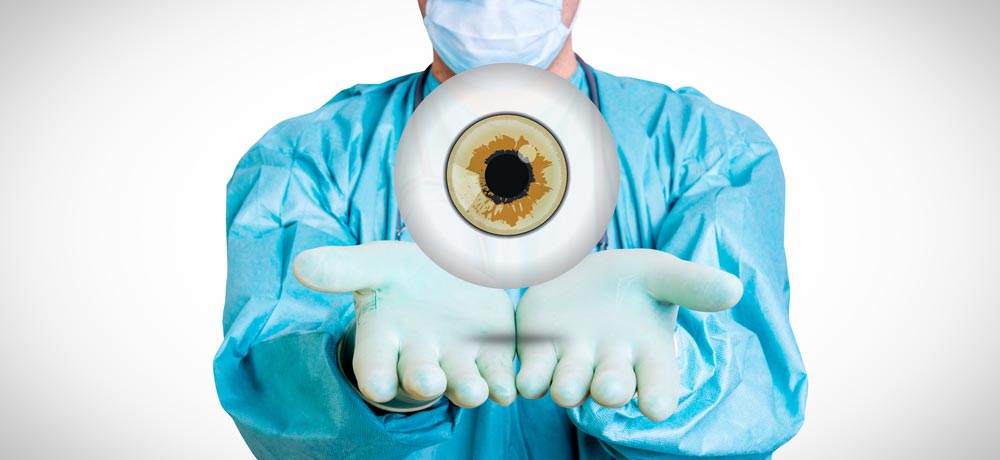Is Refractive Surgical Treatment Right for You? Factors to Take Into Consideration for Better Eyecare
In the realm of eye treatment, the decision to undergo refractive surgical procedure is a crucial one that demands thoughtful factor to consider. From the complexities of one's eye health to the details of individual assumptions and everyday practices, each element holds value in the broader landscape of refractive surgery candidateship.
Eye Wellness Examination
When considering refractive surgical treatment, a comprehensive eye health and wellness analysis is essential to evaluate the suitability of the treatment for each person. cardiologist andalusia. This examination entails a collection of evaluations and examinations conducted by an eye care professional to figure out the general health of the eyes, the presence of any type of underlying conditions, and the stability of the refractive mistake
Throughout the evaluation, various elements are taken into consideration, such as the person's case history, existing eye prescription, corneal thickness, student size, and tear film quality. These evaluations aid to recognize any contraindications to refractive surgical procedure, such as corneal problems, cataracts, or untreated eye infections. Furthermore, the evaluation assists to take care of client expectations pertaining to the prospective end results of the surgery based upon their special eye qualities.
Eventually, the eye health and wellness assessment is important in guaranteeing the safety and effectiveness of refractive surgical treatment, as it gives beneficial understandings into the individual's eye health condition and assists figure out one of the most ideal therapy alternatives for achieving optimum visual outcomes. (eye center andalusia)
Lifestyle Evaluation
A detailed lifestyle analysis is essential in figuring out the suitability of refractive surgical treatment for a person's visual adjustment demands. Lifestyle elements such as profession, pastimes, and daily tasks play an essential role in the decision-making process concerning refractive surgical treatment.
Additionally, way of living habits such as sporting activities involvement, outdoor tasks, or also skin care regimens can influence the recovery process and general success of refractive surgical procedure. Individuals who engage in contact sports might need to take additional preventative measures to secure their eyes during the recovery period. Furthermore, people with substantial sunlight exposure may need extra post-operative like protect against difficulties. By performing a thorough lifestyle analysis, eye treatment specialists can customize their recommendations and treatment plans to fulfill the unique requirements of each person, eventually bring about improved aesthetic outcomes and fulfillment.
Expectation Positioning

Establishing more tips here sensible assumptions involves extensive pre-operative discussions between the client and the eye doctor. The surgeon should transparently connect the possible risks, advantages, and restrictions of the procedure (eye center andalusia). Patients need to understand that while numerous people achieve 20/20 vision or much better adhering to refractive surgical treatment, some might still require glasses for particular activities like analysis or driving at evening. Handling these expectations assists avoid frustration and dissatisfaction post-surgery, resulting in a much more favorable overall experience for the person.
Risk Analysis

Variables that might increase the risk of complications include age, specific medical problems like autoimmune diseases, unpredictable vision prescription, slim corneas, and impractical client expectations. In addition, picking a proficient and seasoned surgeon, adhering to pre and post-operative treatment directions carefully, and divulging any pertinent case history can help alleviate dangers.
To decrease the possibility of issues, eye doctors perform complete pre-operative examinations to identify any kind of contraindications to surgical procedure. They also discuss the possible dangers and benefits with patients during the appointment procedure. By engaging in open interaction and shared decision-making, both the client and the ophthalmologist can interact to determine if refractive surgical treatment is the best selection based upon individual risk profiles and wanted results.
Consultation Relevance
Taking into consideration the essential duty of educated decision-making in assessing threats and potential complications in refractive surgical treatment, the assessment process holds substantial importance in leading clients in top article the direction of ideal results. Throughout the examination, the eye doctor examines the client's eye health and wellness, refractive errors, and total suitability for surgical procedure. This first evaluation is critical in identifying one of the most straight from the source suitable treatment for every individual, thinking about variables such as corneal thickness, pupil dimension, and existing eye problems.
Additionally, the appointment serves as an opportunity for patients to discuss their assumptions, problems, and any questions they may have pertaining to the surgical procedure. Clear communication between the individual and the cosmetic surgeon is vital to make certain practical expectations and an extensive understanding of the potential risks and benefits involved.
Additionally, the examination enables the specialist to clarify the various surgical choices offered, their particular outcomes, and the post-operative treatment needed. This detailed discussion empowers individuals to make educated choices about their eye care, bring about better fulfillment and end results post-surgery.
Final Thought
In conclusion, individuals considering refractive surgical procedure needs to go through an extensive eye health analysis, evaluate their way of life practices, align their expectations with potential end results, analyze the affiliated dangers, and prioritize appointments with eye care professionals. These aspects play a critical role in determining the suitability of refractive surgical treatment for every person, ensuring ideal results and fulfillment with the treatment.
Patients considering refractive surgical treatment often have high assumptions regarding the results, expecting best vision without the demand for glasses or get in touch with lenses. While refractive surgical treatment can greatly enhance vision and reduce reliance on aesthetic help, it is vital for people to recognize that results may differ based on private factors such as the level of refractive mistake, corneal thickness, and overall eye wellness.
By engaging in open interaction and shared decision-making, both the patient and the eye doctor can function together to determine if refractive surgical procedure is the ideal selection based on individual risk accounts and desired outcomes.
Taking into consideration the crucial role of notified decision-making in assessing threats and prospective complications in refractive surgical treatment, the examination process holds significant value in guiding individuals in the direction of optimum end results. During the consultation, the eye doctor evaluates the person's eye wellness, refractive mistakes, and total suitability for surgical treatment.